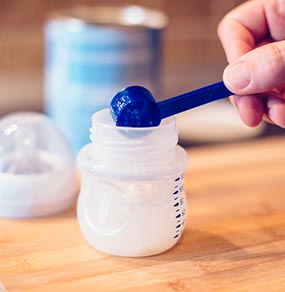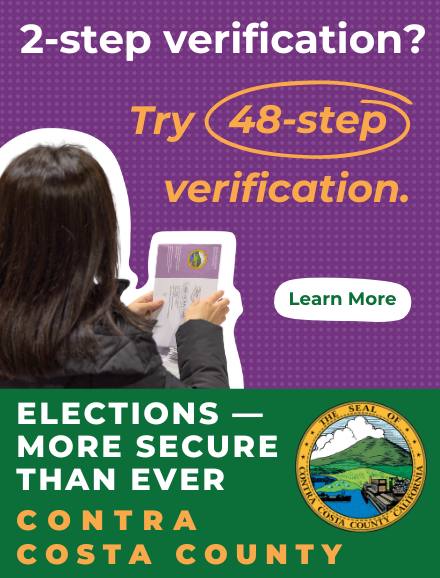Bay Area health officials share guidance to navigate the infant formula shortage


Source: CDC
By Contra Costa Health Services
There continues to be a shortage of infant formula nationwide due to supply chain issues and a recall of infant formula due to bacterial contamination in the Abbott manufacturing plant in Michigan. The federal government is currently working on strategies to increase production of formula and help families access existing stock.
Compared to other states California is faring better, but the shortages are still of concern.
Babies need the right balance of nutrients- not too much or too little of anything- to grow and be healthy. It is important for your baby’s health to use products that meet federal standards to ensure the formula is safe and free of harmful bacteria.
During this challenging time, the counties of Alameda, Contra Costa, Marin, Napa, San Benito, San Mateo, Santa Clara, Santa Cruz, Solano, Sonoma, and the City of Berkeley encourage parents and families to:
- If you are currently breastfeeding, continue if possible. We recognize this optionmay not be viable for everyone. If someone is partially breastfeeding, they may consider reaching out to a lactation care provider (in-person or by telehealth) to help ensure that they maintain or increase their milk supply by breastfeeding more.
- Talk to your child’s doctor about substituting formula brands. For most babies, if their regular brand of formula is not currently available, it is OK to substitute with a similar version. Also consult your child’s pediatrician if your baby requires a specialized formula, (therapeutic or metabolic formula for an infant with a medical condition requiring different caloric or nutrient content), before making any substitution. Your pediatrician may recommend a milk bank referral. If you have questions about which formula is acceptable, contact your child’s pediatrician or your local WIC agency. (In Contra Costa County, call (800) 414-4WIC.)
- Avoid making your own formula at home, watering down formula to make it last longer, using expired formula, using cow, goat, or plant-based milk for formula, or giving toddler formula to infants. Doing so can reduce the amount of nutrients a baby receives and can lead to potential serious health complications. If no other options are available to feed your baby, children over six months may be eligible for whole, pasteurized, cow’s milk, as recommended by the American Academy of Pediatrics. This is not ideal and should not be done for more than one week. Talk to your pediatrician if you need to give your baby cow’s milk for a week to see if this option is appropriate for your child.
- Apply to the WIC program. About half of all births in California are in low-income families who qualify for the WIC program, and income-eligible clients can receive a WIC card and use it to purchase a limited amount of formula at participating retail stores. WIC offices are staffed by individuals with close ties to their communities. Existing WIC clients should use their benefits for formula earlier in the month in case they run into shortages near the end of their benefit period.
- Find out what resources exist in the community and share those resources widely. If you see infant formula in stock when you’re shopping, make it known within your network.
Health officials will continue to monitor the shortage and provide updates as new information is available.
the attachments to this post:




























